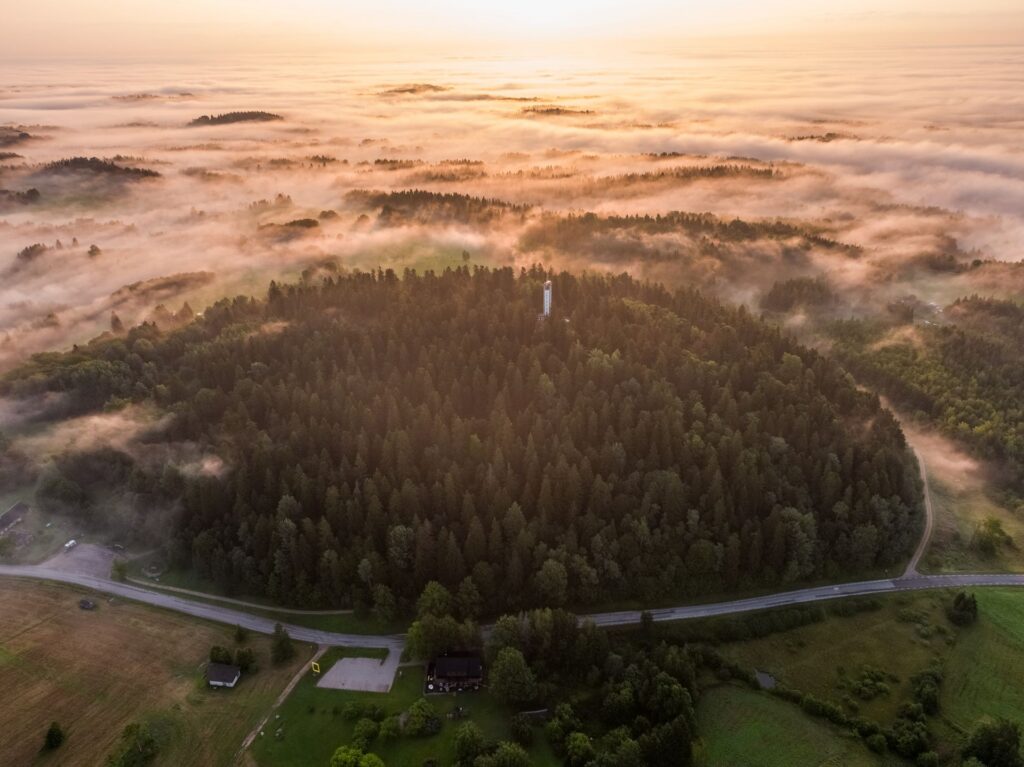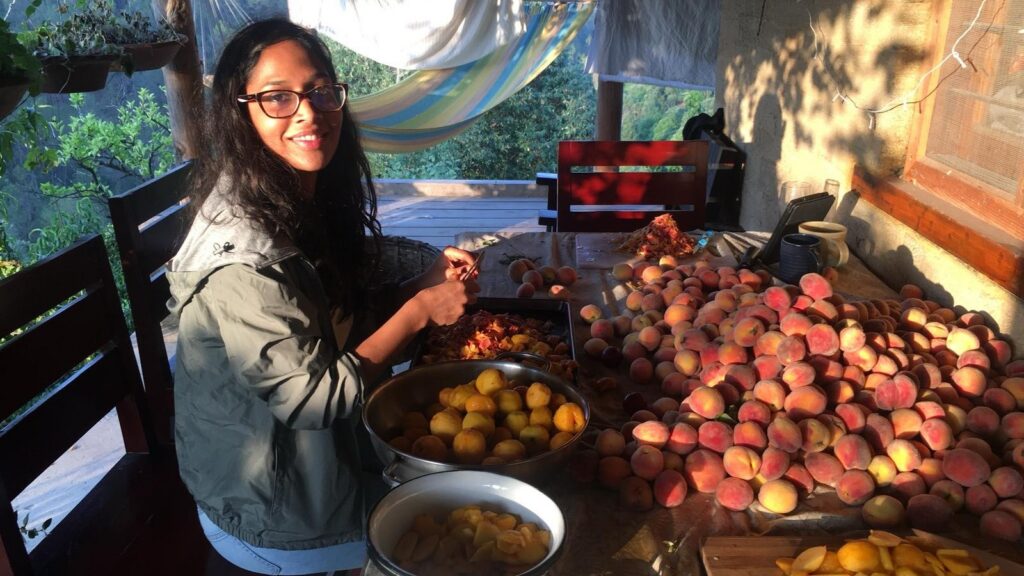“I came for e-governance and found a second home,” says New Delhi-born activist Sara Sinha, who has spent nearly six years in Estonia and has fallen for its digital ease, civic spirit – and the mild, spice-free cuisine.
Sara Sinha (32), a digital activist and advocate for open governance from New Delhi, has been experiencing life in Estonia for nearly six years.
As she has grown more familiar with Estonian society, she has discovered an intriguing similarity between Estonia and India: both countries boast a vibrant civil society, with numerous non-profit organisations working to improve communities and generate value without the aim of making a profit. As a civic activist, Sara has helped connect like-minded volunteers across Estonia and India.
What have you discovered about yourself while living in Estonia?
I’m proud of myself for being able to build a life from scratch in a country that was completely unfamiliar to me. Honestly, I didn’t believe I could actually do it. I’m happy to have a job I truly love here, and close friends.
Of course, the beginning was tough, but I made it. I was very lucky with my university – I studied the Technology of Open Societies master’s programme at Tallinn University – they made everything really easy for me.
What do you think is most essential to successfully navigate such a life-changing move?
I believe the key is to have a job you’re passionate about and a clear goal to work towards. If you don’t find work that excites you, or you don’t know where you’re heading, it becomes difficult. Personally, I really enjoy living in Estonia.
What made you choose Estonia in the first place?
I chose Estonia because I wanted to study e-democracy and e-governance. Estonia is a global leader in this field. When I was researching universities back in 2018, both in India and abroad, Estonia came up first in my internet search. Somehow, I ended up on the website of Tallinn University, and the curriculum looked so exciting that I decided to apply.
From the Indian perspective, Estonia must seem quite exotic – did you hesitate at all?
It might sound strange, but I just had a gut feeling it was the right decision. This is exactly the kind of work I want to do. Personal development and self-fulfilment have always been strong motivators for me.
What expectations did you have of Estonia, and did the reality match them?
Everything I had read about Estonia’s digital state, I got to experience first-hand. For instance, how efficient e-governance really is here. In fact, Estonia exceeded all my expectations.
How were you received here, and how quickly did you adapt?
I was surprised by how welcomed and supported I felt at Tallinn University and in Estonia overall. I arrived in August 2019, and by the third day I was already at the university, meeting my tutor and fellow students. Even before classes began, I had made friends. My tutor supported and helped me, and I received answers to all my questions.
What’s it like living in Estonia?
Some digital services are so efficient that I sometimes wonder whether I’m dreaming – how can things be this simple? The digital infrastructure and lack of bureaucracy really make life easier.
Is Estonia a good place to live and work?
For me, Estonia is a fantastic place to live. But I think it depends a lot on what you’re looking for. I love my field of work, and I don’t enjoy constantly rushing about or dealing with unnecessary complexities. Because life is simpler here, I have more free time for my hobbies.
What are your hobbies?
I enjoy playing chess and listening to heavy metal. I read a lot – both fiction and non-fiction – and, of course, a great deal of literature related to my work. I’m lucky that my job is so interesting that I often engage with it even in my free time.
Where do you work?
I work for Citizen OS, an Estonia-based non-profit that promotes e-participation and a stronger culture of dialogue and decision-making. For example, our platform supports initiatives like Hakkab looma!, which invites Estonians at home and abroad to dream together about the future.
We also organise training programmes, development schemes, and lead international projects. Our platform is primarily aimed at supporting civic initiatives.

What is your role at the organisation?
For the past two years, I’ve worked as a quality engineer. Before that, I was the head of partnerships and community.
What surprised you most about Estonians?
Everything surprised me – in a good way. People here are kind and thoughtful, and they know how to simplify their lives. I was especially impressed by the non-hierarchical culture – it’s so easy to connect with people.
At a tech conference I attended, there were very high-level speakers, yet all of them were approachable, without any airs or barriers. At both university and work, people address each other by their first names, and everyone’s opinion is valued – even students are included in decision-making. I think that’s amazing.
Were you daunted by Estonia’s cold climate?
I know many people complain about the weather, but I might be a bit odd – I don’t like too much heat because I’m sensitive to the sun. I once got sunburnt in Greece and couldn’t believe it – I’m from India! So, Estonia’s cool climate suits me perfectly.
Do Estonians and Indians have anything in common?
India is vast and diverse, so it’s hard to generalise. But through my work, I’ve noticed that both in Estonia and India, there are many non-profits working to improve society without the goal of making money. That’s a striking similarity I’ve observed.
I’m proud to have introduced people from both countries who share the same goals and interests – they can learn from one another.
How diverse is your social circle in Estonia?
I have a few Indian friends here, mainly brought together by shared hobbies. I’m a member of the Tallinn Toastmasters Club, which I joined to develop my public speaking and communication skills for different audiences. Many of my closest friends – including Estonians – I met there. It’s also the main place where I meet new people. I spend a lot of my free time there.

Which part of India are you from?
I was born and raised in Delhi, and I came to Estonia directly from there. I’ve visited other countries, but I had never worked or studied outside India before.
How often do you visit home?
I travel to Delhi once a year. My parents miss me – which still surprises me! They’ve also visited me in Estonia. They loved it here and were amazed by how beautiful and peaceful everything is. They were especially stunned by how clean and quiet public transport is here.
Do you come from a large family?
I have one sister.
Do Estonian and Indian cultures have anything in common? What do you miss most about India?
India is culturally rich, but I would say the same about Estonia. Visiting museums and listening to locals has helped me understand how rich Estonian culture is too.
It’s hard to say what I miss most about India – maybe the Himalayas. But Estonia also offers so many opportunities to enjoy nature. It’s everywhere and so accessible.
Have you already climbed Suur Munamägi (“Great Egg Mountain”, the highest natural point in Estonia)?
Not yet, but it’s definitely on my to-do list!

Name a few of your favourite places in Estonia.
My favourite town is Viljandi – it’s just so charming. I haven’t been to the Viljandi Folk Music Festival yet, but I definitely plan to go.
Another favourite is Otepää, with its stunning natural scenery. I hope to visit it in winter one day.
Favourite Estonian food?
Kohuke! I absolutely adore it. And honestly, I enjoy all Estonian cuisine. Strangely enough for an Indian, I can’t handle spicy food – it gives me stomach aches. I’m surprised by how much Estonians enjoy spicy food – sometimes you add more spice than I can tolerate! I happily eat meat and potatoes, just without the spice.
Favourite Estonian artist?
There are many great bands in Estonia. I really like Metsatöll. I also discovered lots of brilliant artists at Tallinn Music Week.
Favourite Estonian word?
Mets (“forest”). It sounds so beautiful.
What’s the most difficult Estonian word?
Otepää!
What makes Estonian difficult to learn?
The cases. Even if I know a word’s meaning, I might not understand it in a different case. At the same time, the case system is fascinating and unique. But it definitely makes reading more challenging. Cases are the biggest hurdle. Pronunciation also takes effort.
My Estonian level is A2. I’m currently working on improving my reading. I enjoy reading in Estonian, but it’s still quite difficult.

The article is part of the media programme “Estonia with many faces,” which highlights the richness and diversity of Estonian culture. The programme is supported by the Estonian Ministry of Culture and co-financed by the European Union.

